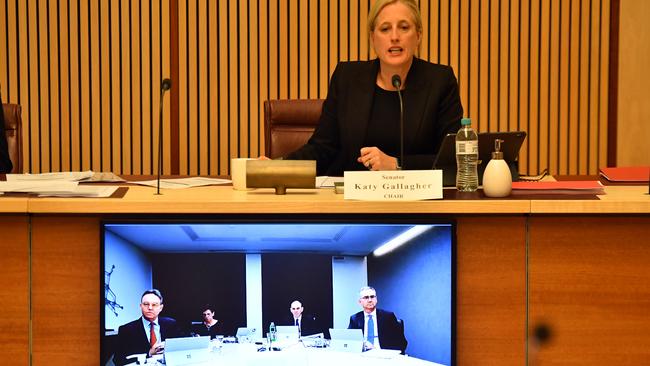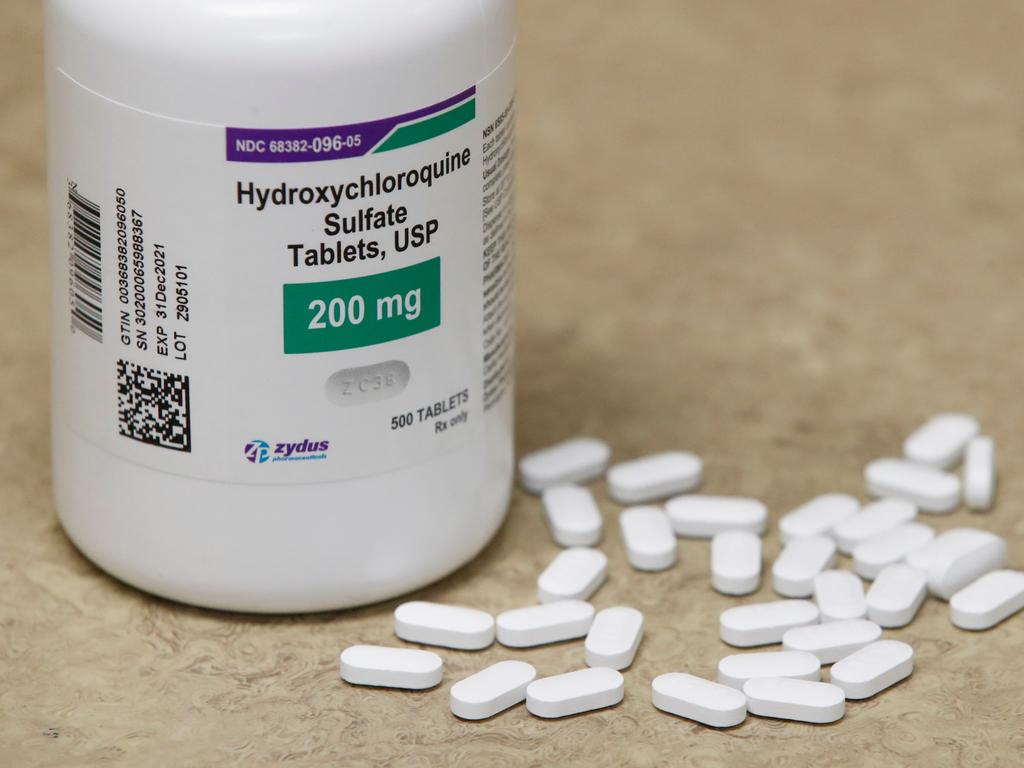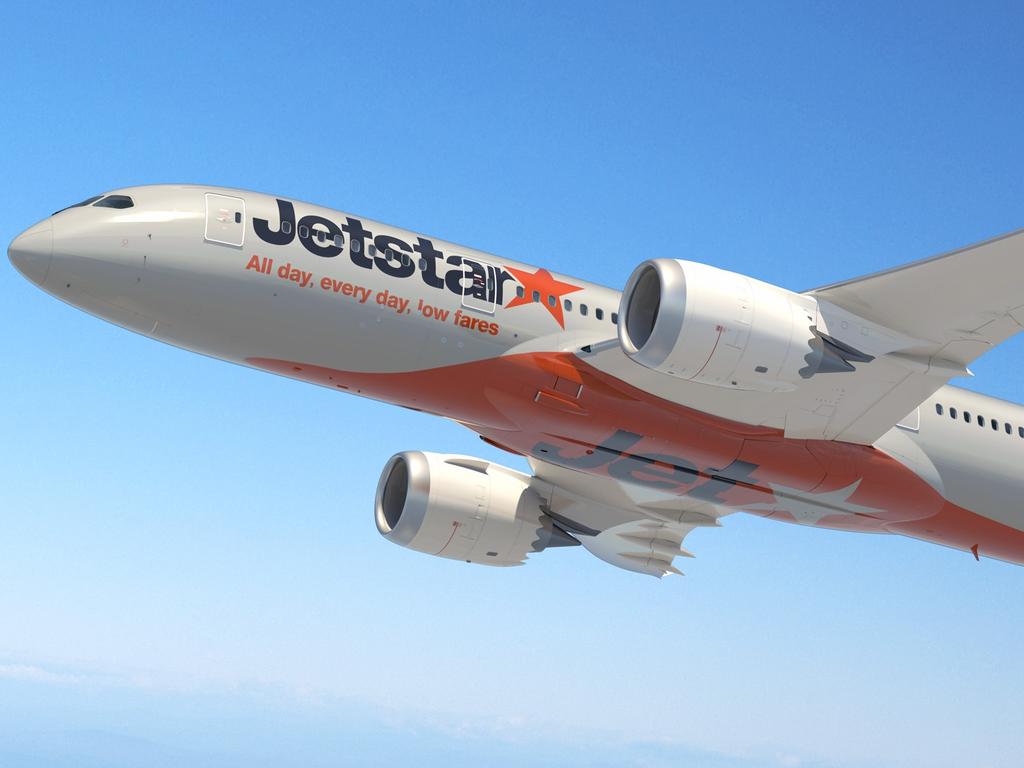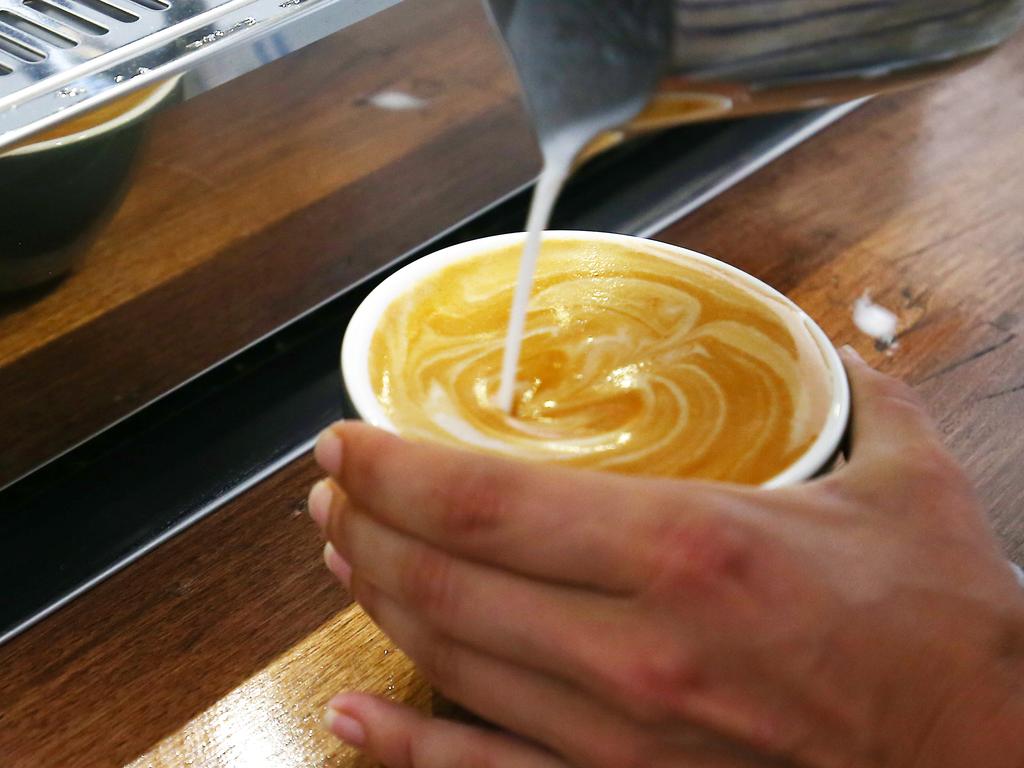Coronavirus: Value of loan deferrals for businesses and households hits $250bn
There is growing pressure for replacement policies to pull the economy back from a cliff in September when the deferrals expire.

The value of loan deferrals for businesses and households has hit $250bn, intensifying the pressure for replacement policies to pull the economy back from a cliff in September when the deferrals expire.
Australian Prudential Regulation Authority chairman Wayne Byres told a Senate committee on Thursday that some customers would clearly be unable to repay their loans.
“But equally we don’t want to put pressure on a large group of customers at the wrong point of the cycle,” Mr Byres said.
“We often talk of the cliff, which is when everything ends in six months’ time.
“No one has an interest in going off the cliff, so we have to work out what the next phase is going to be and that will be dependent on the economic situation at the time.”
However, there was no doubt that risk in the financial system was rising, and everyone would have to work carefully over the longer term to make sure the system stayed “safe and stable”.
It was also confirmed in evidence to the Senate committee on COVID-19 that the Australian Taxation Office had suspended access by superannuation funds to Super Match after new concerns about fraud.
Super Match provides information to help funds consolidate their accounts for members.
APRA deputy chairman Helen Rowell said people’s identities had been stolen and used to log into a super fund, with the platform then used to search for funds held in a similar name.
Ms Rowell said the scheme was identified early and there was no evidence that funds had been lost.
News of the scheme followed reports earlier this month that about 150 people had $10,000 removed from their super accounts by fraudsters.
Law enforcement is now investigating the cases.
The Morrison government has granted early access to retirement savings for people experiencing financial hardship as a result of the coronavirus.
They can withdraw $10,000 before June 30 and a further $10,000 after July 1.
The committee heard that about $14bn of an expected $27bn had been withdrawn under the scheme.
APRA took on notice a question from Labor senator Kristina Keneally about how many super accounts now had a zero balance as a result of the initiative.
As of May 24, 117,500 people, or 7 per cent of 1.5 million applicants, had withdrawn amounts of less than $10,000.
Ms Rowell agreed that some of those accounts would have been drawn down to zero.
Mr Byres said in his opening statement that, three months into the crisis, it was APRA’s view the financial system had responded well to the impact of COVID-19.
While “never perfect”, investments in financial resilience, risk management, cyber security and contingency planning had stood up well so far.
However, it was still early days and “many more significant challenges” lay ahead, so a high degree of ongoing vigilance was necessary.
Mr Byres was more forceful on Wednesday night, telling an International Banking Federation meeting that solvency pressures were increasing amid higher credit risks, and that bank dividends would remain under pressure for the longer term.
“As much as we have all worked to overcome a torrid past few months, we also need to keep in mind that the real battles for the financial sector remain ahead,” he said.
Despite concerns expressed by industry funds about the liquidity impact of the early release scheme, Ms Rowell said the situation was expected to remain “manageable” at a system level.
While the number of applications was higher than forecast, the dollar amount was in line with Treasury predictions
The liquidity of some funds could be stretched if withdrawals turned out to be higher than the expected $27bn.
Ms Rowell said there had been a number of discussions with ASIC about fraud prevention.
However, it was difficult to get accurate figures on the extent of it.







To join the conversation, please log in. Don't have an account? Register
Join the conversation, you are commenting as Logout